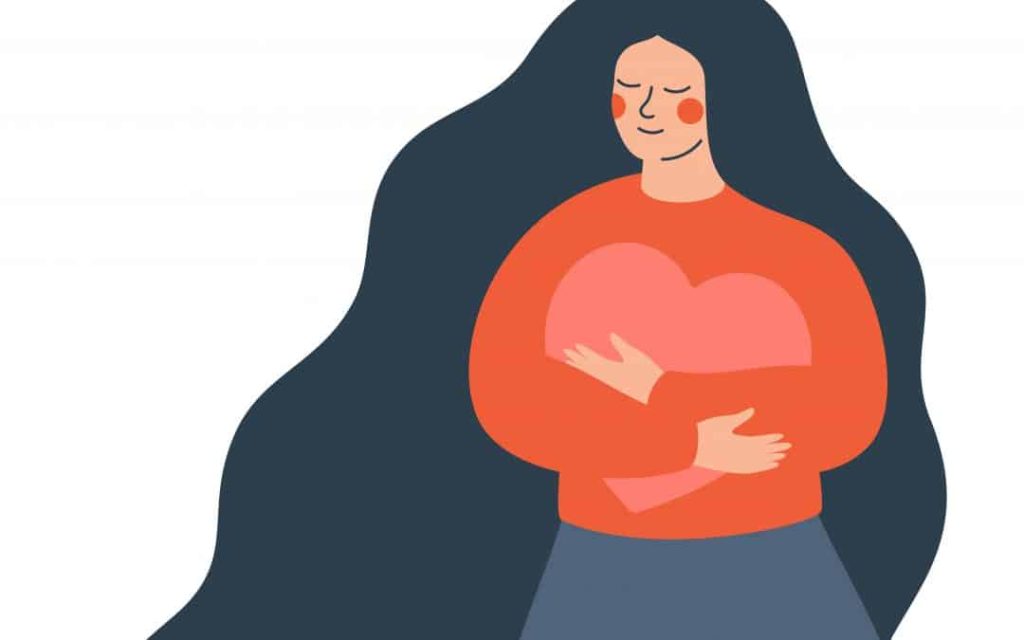WHY SELF-ESTEEM IS SO IMPORTANT

Smiling in front of the mirror helps to get a better mood and boost your self-esteem. Positive self-esteem is not only considered a protective factor against stress, but also makes people feel more confident and happier. Like when winning at Bizzo Casino.
Low self-esteem has a negative impact on one’s own well-being and also leads to problems in everyday life. But what does “self-esteem” mean anyway and how can you increase negative self-esteem?
THE DEFINITION

Self-esteem refers to the image one has of oneself: of one’s individual qualities and abilities. Thus, self-esteem describes the subjective assessment of one’s own worth. Am I valuable or am I not?
People with a healthy self-esteem are convinced that they can positively influence themselves and also their environment. In addition, they know that they can overcome difficulties and challenges on their own.
Self-esteem is significantly influenced by three areas of life:
- Social contacts: Good relationship with family, friends and, if applicable, a partner.
- Achievement and success: Achieving academic, professional or personal goals.
- Self-fulfillment: engaging in one’s own interests, hobbies, and talents
A stable self-esteem offers numerous advantages and has an impact on life satisfaction as well as health. At the same time, positive self-esteem leads to resilience to stress and the ability to adapt to change. People with healthy self-esteem show a high willingness to admit and correct their own mistakes. Moreover, they accept themselves as they are – with all their faults and flaws. This makes them independent of positive feedback from others or current personal successes. Those with good self-esteem often also treat others with respect, fairness and goodwill.
LOW SELF-ESTEEM
Challenging situations such as job interviews, a presentation at work or flirting with a stranger present extreme challenges, especially for people with low self-esteem, and are accompanied by a feeling of psychological stress. Affected people doubt themselves and feel that they are not good enough or not up to the situation. Negative thoughts and self-doubt cause people to feel uncomfortable and avoid the challenging situation as much as possible.
People with low self-esteem believe that they themselves have little or no influence in shaping their lives. The causes of low self-esteem are often rooted in childhood and are related to the parental home and environment. Children who are constantly judged, ridiculed, manipulated or despised thus develop poorer self-esteem than people whose childhood was characterized by love, esteem and respect.
But toxic relationships, bullying experiences at school, lack of success or exclusion at work can also be reasons for a lack of self-esteem. At the same time, emotional, physical or sexual abuse, the loss of a loved one or discrimination of any kind can lead to low self-esteem.
Having no self-esteem or low self-esteem affects not only one’s mental health, but all areas of life. This especially comes into play in relationships. The saying “If you don’t love yourself, you can’t love anyone else” thus has a kernel of truth. Those who accept and love themselves can also give this back to others.
Low self-esteem: These are the symptoms
People who have low self-esteem typically tend to have the following symptoms:
- Permanent comparison with others around them possibly including envy or resentment
- Dissatisfaction with themselves and their own lives
- Indecisiveness and doubt
- Reserved personality in order not to attract attention
- Life cannot be enjoyed to the fullest
- Due to anxiety, sufferers often remain in their comfort zone
- Unfounded fears about the future
- Insecurities
- Physical and psychological state of tension
- Own successes cannot be perceived